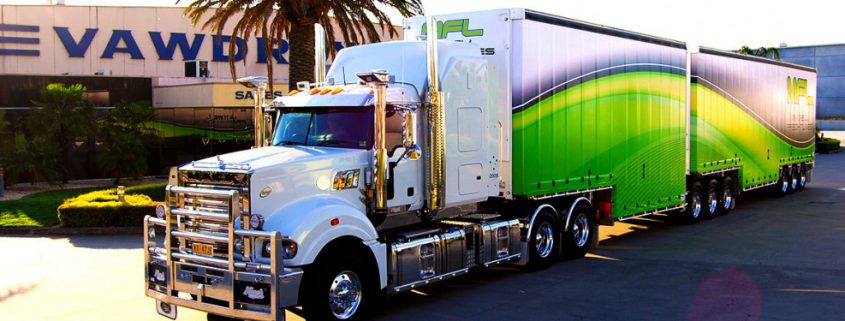How To Choose Your Logistics Partner?
At some point every product based business will need to transport goods from A to B and beyond. Choosing the best logistics company to do this means striking a balance between time and budgetary constraints. Get it wrong, and you will end up with some unimpressed customers.
Surprisingly, the selection of something as important as the right carrier or logistics provider is often an afterthought. Whoever the transport arranger is in a company – a dedicated distribution manager or frequently a receptionist, the task of selecting the right carrier can be a stressful one. If the delivery goes wrong, you don’t want to be noticed for the wrong reasons. With thousands of companies all purporting to offer similar services, how do you go about selecting the one that best suits your requirements?
1. Identify your customer’s requirements:
- How quickly do they expect the delivery? A two day service is cheaper than a Same Day or Next day delivery.
- Which service is most suitable? Parcel carrier, palletised freight service, direct courier or haulage?
- Consider any access restrictions at the point of delivery .Is it to a residential address or if to a business does it need to be booked in for delivery?
2. Consult the carrier checklist as follows. This will help steer you in the first direction.
- Is the carrier an operator or a re-seller?
- Is the customer service local or national? It’s better to talk to people who know the account rather than a distant call centre.
- Is there a web based IT booking and tracking system? This allows full transparency regarding the levels of service.
- How many depots cover the UK? APC have 128, this density means smaller delivery areas and a better level of service.
- Can the carrier offer multiple services in-house? This allows the flexibility to save money
- What value added offering does the carrier have? Do they provide in-house logistics and warehousing? Do you have a nominated account manager? Does it have a published service recovery policy?
- Does the carrier love logistics? Is it keen to work with you and will you get on with the people you will be dealing with?
- Have you been invited to check out their site and operation?
- Does the carrier monitor and publish its on-time and in-full delivery performance?
- How confident is the carrier of their service? Do they offer a money back guarantee in the event of service failure?
- Can the carrier provide reference testimonials from current customers?
- How far away is the carrier’s depot? Can they provide a reliable collection at the time requested?
- Is the pricing transparent? Are there any hidden surcharges? Are there any minimum usage amounts? How long will the carrier hold the price for? Having made the move to change carriers a price increase after a few months is most unwelcome.
- Does the carrier have leading IT systems and a willingness to integrate if required? On the flip side do they permit manual manifests if preferred? — it’s the customers choice.
- How does the carrier scale up during peak periods? Remember some companies had thousands of undelivered consignments last Christmas
3. Service Commitment
There is clearly plenty of potential for error and delay in transport which may be as the result of human error, traffic delays, vehicle breakdowns etc. With so much importance riding on an on-time delivery, prompt and honest communication from the carrier is key.
Many transport companies advertise services that they do not themselves do, but sub-contract to other carriers. On the occasion that something does go awry, communication can be difficult as your carrier will only be as good as the information they are receiving from their supplier. This is often a cause of tension when answers to an issue are being chased.
Other logistics operators control and operate the entire distribution network so this has the added advantage that your contact at the logistics company is in total control of your goods from pick up to delivery and can tell you immediately where any of your goods are at any time, night or day.
4. Price
Price or cost, while important, should not be the over riding factor. Ultimately if your product doesn’t make it to its destination safely and in good transit time, it won’t matter if you received a really cheap rate because you will have a very unhappy customer.
5. Information flow and Follow Up
Timely information is a key to success. Online technology makes for quick reports and a more efficient distribution system. Some logistics companies have advanced IT systems that allow you to access your account remotely on line. From this you see exactly, what stock you have in their warehouse, what and where your goods are in transit etc.
6. Operations and Customer Service
The operations personnel of a logistics company set the service level you receive. If they are unhelpful or not responding promptly then you definitely need a new company. Never settle for slow response rates because of cheap rates, you’ll end up regretting it.
Companies that are good in this category constantly monitor call answering times against KPIs (Key Performance Indicators), follow up with emails/phone calls the same day and also take a proactive approach to service rather than a reactive.
7. When things for wrong
Logistics is not an exact science and when something goes wrong, the good companies get right on it and maintain solid communications with all necessary parties. It’s often how the logistics company responds and recovers that make them great.
Written by By Mark Duggan
Source: http://www.freshbusinessthinking.com/business_advice.php?CID=13&AID=6314&PGID=1





